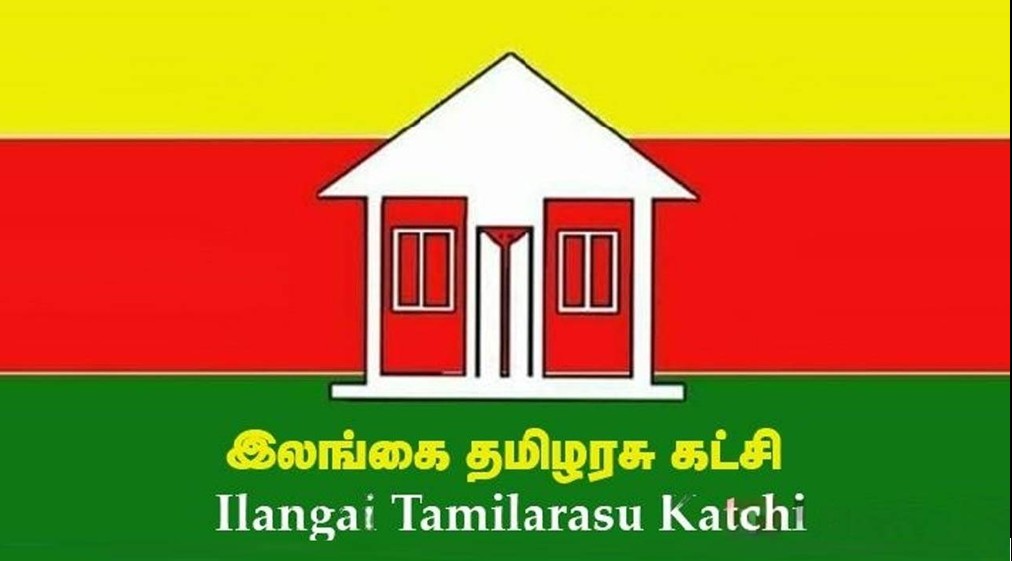Tamil National Alliance Sends Letter to UN Human Rights Council
29-Aug-2025.

Ilangai Tamilarasu Katchi (ITAK) has sent a letter to the UN Human Rights Council (UNHRC) urging it to continue pressing Sri Lanka to adopt a new federal constitution with extensive power-sharing in the North and East, and as an immediate step, to compel the government to conduct provincial council elections without delay.
The letter, signed by ITAK Deputy Leader C.V.K. Sivagnanam, Deputy General Secretary M.A. Sumanthiran, and MPs Sivagnanam Sritharan, Thurairasa Ravikaran, Dr. Satyalingam, Rasamanickam Sanakiyan, Gnanamuthu Srinesan, Dr. Srinath, and Kavindran Kodiswaran, states:
Discrimination under the unitary constitution and the periodic violence unleashed against the Tamil people led us in 1976 to demand the restoration of our sovereignty lost to colonial powers. This demand eventually led to the armed struggle, which was militarily crushed in 2009. During the war, the security forces committed grave war crimes, crimes against humanity, and other international crimes, including genocide against the Tamil people, peaking in the final stages of the conflict.
Most recently, a mass grave was discovered at Chemmani, Jaffna, where more than 150 skeletons have already been unearthed in a small area—96% of them buried without clothing. Scans indicate that more bodies remain.
A soldier convicted in 1999 revealed that hundreds of bodies were buried by the military at that site. Reports by the Human Rights Commission in the mid-1990s also investigated disappearances in that region, pointing to genocidal intent.
For over a decade, we appreciate UNHRC’s efforts to keep international focus on Sri Lanka’s crimes. In October 2015, UNHRC passed Resolution 30/1, co-sponsored by Sri Lanka, committing to a hybrid court with international judges and constitutional reform. But Sri Lanka later withdrew. Now, the Office on Accountability is collecting and preserving evidence, which must be expanded and expedited, then referred to appropriate UN bodies for firm action.
Since Sri Lanka has not signed the Rome Statute, it must be pressured to do so. The Sri Lanka Human Rights Commission and the UN High Commissioner for Human Rights have already recommended this. Matters of accountability could also be referred to the International Criminal Court (ICC) or the International Court of Justice (ICJ), especially regarding genocide.
Despite UN criticism of the lack of progress domestically, victims have grown frustrated by the futile wait for accountability within Sri Lanka. International involvement in mechanisms such as the Office on Missing Persons should be expanded to restore trust.
The resolution to be passed at the upcoming 60th UNHRC session should mark a turning point in resolving the Tamil national question.
The discovery of 150 skeletons at Chemmani is further evidence not only of genocidal acts but of genocidal intent. Thus, like in Myanmar, member states should seriously consider referring Sri Lanka to the International Court of Justice.
The mandate of the Sri Lanka Accountability Project must be broadened to include evidence of genocide and genocidal intent, alongside war crimes, crimes against humanity, and other violations. Evidence collection and preservation must continue, though the project should soon conclude its work.
While a Security Council referral to the ICC may be unlikely, the Human Rights Commission and the UN High Commissioner have both recommended urging Sri Lanka to ratify the Rome Statute.
As a guarantee of non-recurrence, Sri Lanka must be pressed to negotiate a new federal constitution with power-sharing in the North and East, and as an immediate step, to hold provincial council elections without delay.







